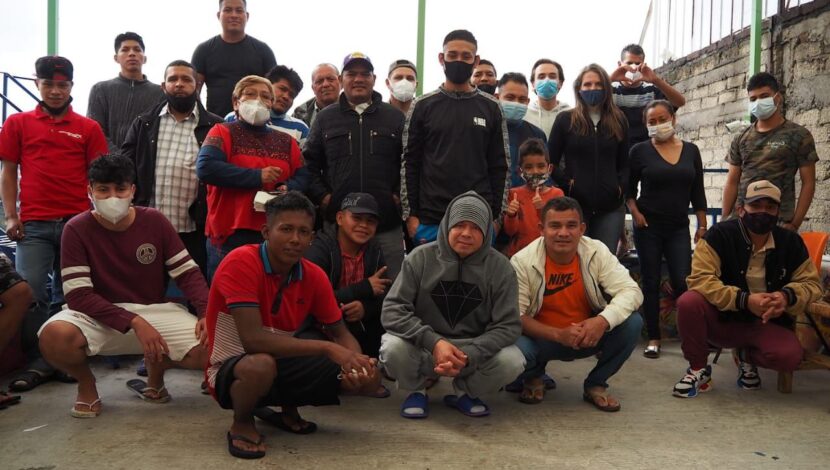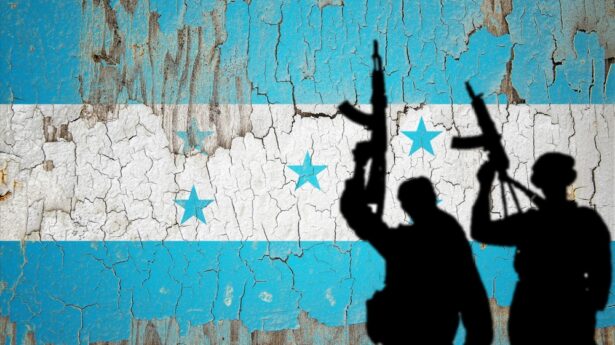The Unitarian Universalist Service Committee advances human rights through grassroots collaborations.
Dignity, Freedom, and Justice for All

By Deanna Johnson on December 5, 2023
December 10 marks the 75th anniversary of the signing of the Universal Declaration of Human Rights (UDHR), also known as International Human Rights Day. The 30 articles in the UDHR provide the bedrock for current and future human rights law and mechanisms by detailing the rights to which every human being is entitled regardless of nationality, age, gender, religion, or any other identifier.
This year’s Human Rights Day theme is Freedom, Equality, and Justice for All. Despite progress made in the 75 years since the UDHR was signed, global events such as the pandemic, climate change, and government-sanctioned violence have highlighted the ways in which human rights continue to be threatened. This Human Rights Day, we look back on the work of our global partners in developing sustainable solutions that confront community challenges and advance social justice in relation to some of the articles of the UDHR.
Article 13: The Right to Move
“Everyone has the right to freedom of movement and residence within the borders of each State. Everyone has the right to leave any country, including his own, and to return to his country.”
More than 11 million people have been displaced since Russia’s violent full-scale invasion of Ukraine in 2021. In response, local organizations across Eastern Europe have expanded their services to meet the needs of Ukrainians who have been forced from their communities. Included among these organizations are UUSC partners who provide critical support to Ukrainian refugees and internally displaced people paying special attention to members of communities at risk of exclusion.
For example, in addition to its narrative change work confronting anti-Roma discrimination in Poland, Foundation Towards Dialouge provides case management support to recently arrived individuals and their families. Queer Svit accompanies LGBTQIA+ and BIPOC individuals to safe housing from the point of leaving Ukraine to arriving in their new community, providing free psychosocial support, medicine, food, and legal advice. And, Fundusz Feministyczny (Fem Fund) provides flexible small grants for women-led and LBTQIA-led activism and organizing via a participatory grantmaking model. These are just a few examples of the tremendous life-saving work UUSC’s numerous partners are doing in the region to support the right to move.
Article 14: The Right to Asylum
“Everyone has the right to seek and to enjoy in other countries asylum from persecution.”
Climate change, instability, and violence threaten the safety and security of millions of people in Central and South America every day, causing people to flee their homes in search of safer and more secure lives. UUSC’s partners in Mexico and the United States work continuously to advocate with people in migration for policy change while also providing integral support.
Among UUSC’s many partners in the region is Tochán Sueños y Realidades, A.C. (TSRAC) who runs the Mexico City based shelter, Casa Tochán. The shelter not only provides people in migration with lodging, but residents also receive legal and community integration support throughout their asylum processes. Similarly, the Albergue y Comedor para Migrantes San Francisco, A.C., based in Sinaloa, Mexico provides legal accompaniment and community integration and employment support to people in migration in the city of Mazatlán. Additionally, the Austin Sanctuary Network (ASN) provides sanctuary to individuals in Central Texas at risk of being unjustly deported. ASN also provides trainings and community capacity building to encourage policy and systems change around asylum and deportation.
Article 17: The Right to Own Property
Everyone has the right to own property alone as well as in association with others. No one shall be arbitrarily deprived of his property.
The term loss and damage refers to what is lost and damaged due to climate change. Typically, when people discuss loss and damage, they refer to the economic casualties of climate change—building destruction, market disturbances, shortages—but loss and damage also includes the intangible items threatened—language, cultures, sacred spaces. These intangibles are property as much as homes and buildings are.
Small Island Developing States (SIDS) are acutely affected by loss and damage. UUSC’s partners in the Pacific directly address this. In October, all Pacific Island partners convened in Fiji to discuss solutions to protect their homes, cultures, and islands from the effects of climate change. Further, the Kioa Island Community Organization (KICO) hosts agroforestry training and rehabilitation programming aimed at mitigating the deleterious effects of climate change on farming and forestry on Kioa Island. Te Mwenga and the Rabi Island Community Hub (RICH) are working together to address Rabi Island’s worsening environmental crisis and strengthen capacity to carry out critical loss and damage mitigation work.
UUSC is proud of the work our partners do around the globe to support human rights and justice for everyone. We will continue working to promote the tenets of the UDHR this Human Rights Day and every day.
Visit our Grassroots Partnership page to learn more about our partners and the important work they are doing to uphold the principles of human rights.
Image Credit: UUSC

